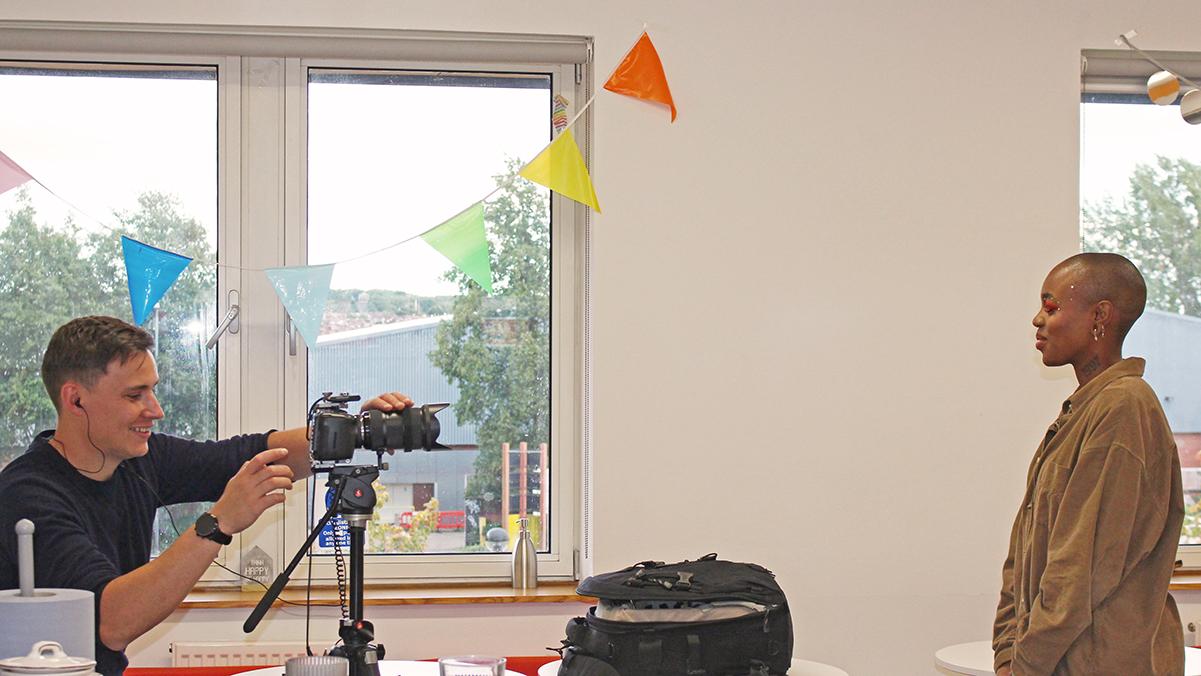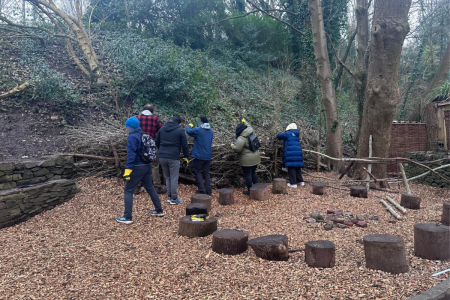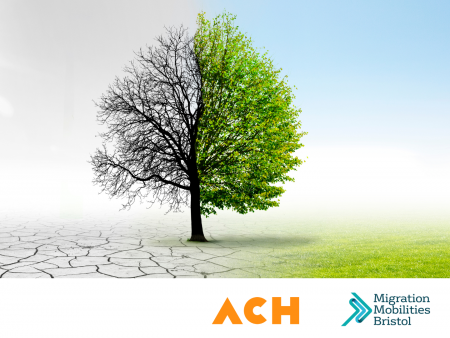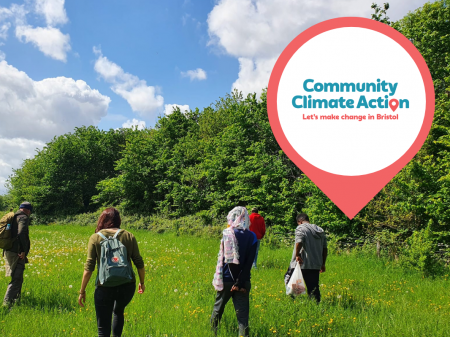
Co-production on the Community Climate Action Project
Through the Community Climate Action Project we've been working to empower communities in Bristol to learn about the climate crisis and become environmental activists.
At ACH, we’ve been working with our tenants and community to raise awareness of the inequalities at the heart of the climate debate.
Often, those most disadvantaged contribute the least to environmental damage, yet bear the most costs. We want to raise awareness of this, identify inequalities in the climate debate and forge an inclusive understanding of what community climate action means.
We’ve been working this year on the Community Climate Action Project, which aims to support diverse communities across Bristol to become engaged in climate action and environmental issues. We’re proud partners alongside Ambition Lawrence Weston, Bristol Disability Equality Forum, Heart of BS13, Lockleaze Neighbourhood Trust, and Up Our Street.
At this point in the project, we have been reflecting on what we have discovered so far about how to do community-based action with our refugee and migrant communities. We’ve learnt that refugee communities are often most affected by climate change, whilst being among the lowest contributors. As a result, our approach to the project has been informed by equity, climate justice and co-production.
We value our communities’ lived experience knowledges about the climate crisis. This was explored by Tom Dixon, our Research and Project Lead at ACH, who spoke last week at an event at Bristol Festival of Ideas on ‘How can Communities Lead on Climate Action?’. As Tom said:
'For us in the UK, the context of climate change can often be abstract. It can be seen as something that is in the future, and can feel like something that isn't necessarily impacting us in our daily lives. This is different for our service users. For refugees in the city, many may have fled their home countries because of conflicts that can be traced back to climate change, and not only that many of them will have friends and family in those countries who are being impacted right now by famine, by drought and by the various symptoms of climate change'
When developing community climate action we need to need to think about privilege and position when engaging with refugee communities about the climate. Our ACH climate champion, Esther Bakari (ACH Refugee Integration and Support Officer), explored this concept whilst filming a video for the Climate Action Project. She highlighted the need for refugees to be a part of the project production process, and emphasised that the our programme should be tailored to their specific needs.
This proved to be especially important after we discovered the results of a carbon footprint analysis report produced by the Centre for Sustainable Energy for our tenants. It showed that:
'ACH’s residents have a very low carbon footprint – on a per person basis, it is less than a half of the Bristol average. We can see that the average carbon footprint of an ACH resident is very low compared to the Bristol average – 2,475 kg.CO2e compared with 6,053 kg.CO2e.'
Traditionally, climate action and awareness work has been focussed around encouraging people to recycle, to reduce and reuse, alongside education programmes about the effects of climate change and the need to make personal changes to mitigate your effect on the environment. However, we have had to think carefully about how we engage with our residents on climate change, as many already have valuable lived experience and exist at the intersection of different inequalities which need to be taken into account. Our tenants know first hand the effects of climate change, whilst contributing much less than the average UK citizen to the problem. As Tom said:
'Climate change activism is often about compromise. What is important is who we ask to compromise. Are we asking people to give up things? So we completed a carbon footprint survey for our residents and found that refugees in Bristol have some of the smallest carbon footprints. So are we asking them to give up more or should we be giving up things so that they don't have to?'
We want to continue our work on the Climate Action Project with a focus on learning about the Bristol climate context and getting our tenants into green jobs, and enabling them to enter a growing sector of the economy. Working to this aim ensures our tenants can learn and also benefit from the burgeoning green sector, learning valuable employability skills alongside environmentalism and climate action. This is why our Project Officer Yasmeen Shaeik has created the ACH Climate Course, which focusses on the climate context in Bristol and how to access green employment.
'Research by the Institute for Public Policy Research suggests that more than 200,000 jobs could be created in energy efficiency by 2030, and 70,000 jobs in offshore wind alone as soon as 2023, while Thrive Renewables estimates that onshore renewables could deliver 45,000 new jobs by 2035.'
Our next steps on the project will be the publication of a Community Climate Action Report alongside our other project partners. Our Research Data Officer, Katya Thickpenny Ryan has written our contribution to the report, which will show our findings from the project and be an important tool for community climate action.
Read our Climate Action Course.
Watch Tom Dixon talk at Bristol Festival of Ideas:


